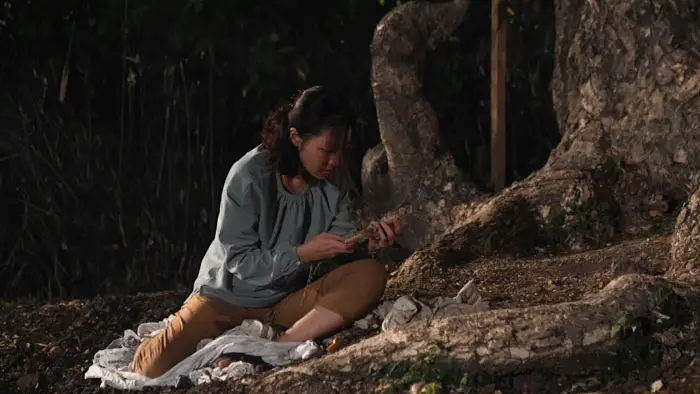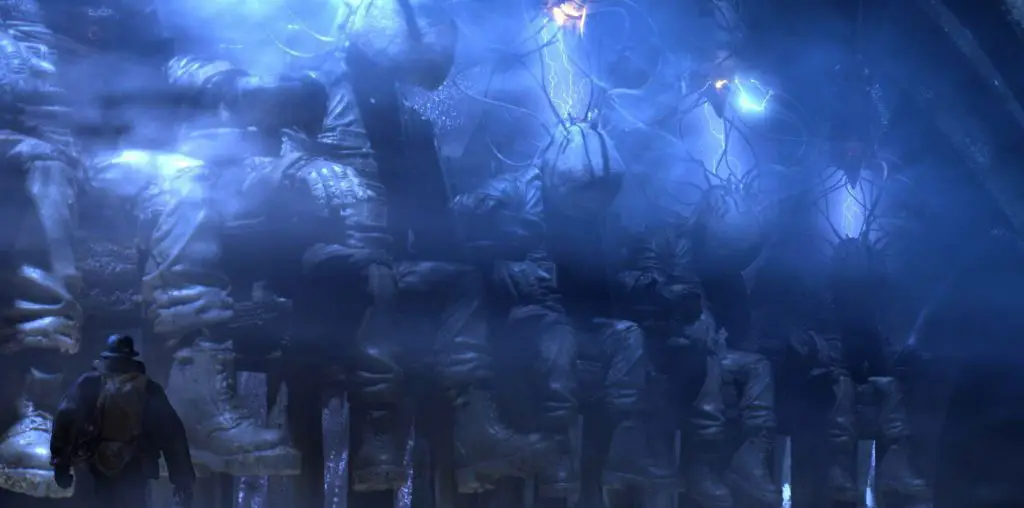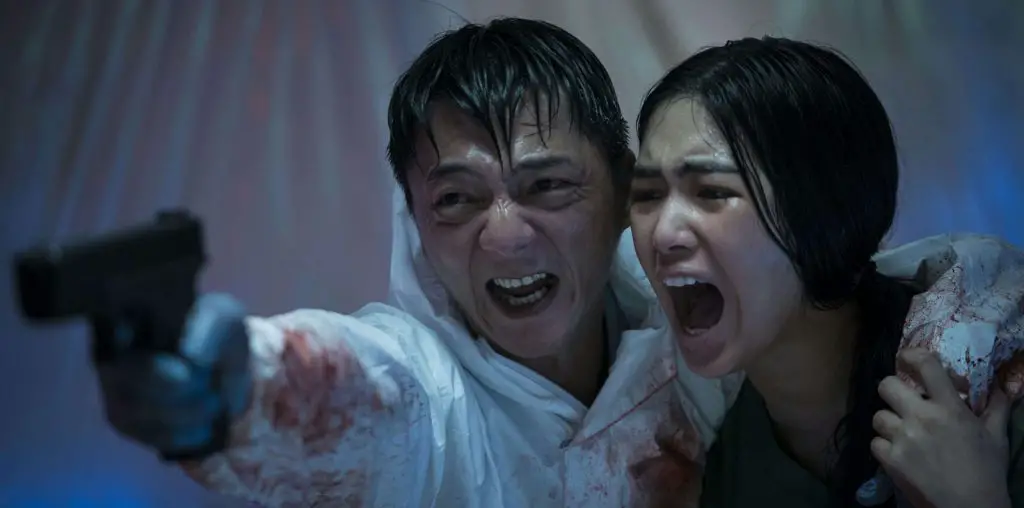
LOCARNO FILM FESTIVAL 2021 REVIEW! Southeast Asia has steadily been cranking out some of the most atmospheric and haunting pictures of the last couple of decades with titles such as Soul (Roh), Hypocrite (Muafik), The Wailing, and Impedigore. Now Malaysian filmmaker Keat Aun Chong’s The Story of Southern Islet can be added to that ever-growing list.
And while not technically horror, The Story of Southern Islet still delivers images that sear into the brain and linger long after viewing. Based on writer-director Chong’s childhood memories, the film opens with a shadow play, which is the perfect metaphor for telling this dramatic fantasy. Our early recollections are viewed through a hazy lens that can magnify our memory, causing terror to swell to sizes far larger than reality.
Set in the small village of Kerat, in the late 1980s, we are introduced to Cheong (Season Chee), a local fisherman who lives with his wife Yan (Jojo Goh) and two young sons. The village itself is a convergence of cultures, including Buddhism, Hinduism, Islamic, and shamanistic. Yan subscribes to a westernized view, and when Cheong makes offers to his god during these lean times, she is dismissive of his penchant for such supernatural rituals.

“Yan, concerned for her husband’s health, resorts to more spiritual practices…”
The plot really kicks when Cheong accidentally destroys a neighbor’s fence, which sets off a chain of events that results in him falling ill. His sickness carries rather unusual side effects. Yan, concerned for her husband’s health, resorts to more spiritual practices in an effort to help her husband’s recovery. Before too long, the rational Yan finds herself at a similar crossroads as her developing town: is this sickness a result of mere misfortune, or are there larger supernatural entities at play?
Chong soaks The Story of Southern Islet in atmosphere, and his deliberate pacing is offset with mounting dread that builds as Yan searches for logic. In doing this, his camera lovingly captures the majestic Mount Keriang that towers over the tiny village, complete with sparkling waters, sumptuous green fields, and imposing shadows from the neighboring hills. Contrasts can be found throughout the film, which echoes Yan’s internal struggle in her efforts to help her husband and maintain her rational approach to healing.
It also reflects Malaysian culture and its melting pot of ideas as it moves from ancient traditions to modernized medicine. As a film, this attention to the environment immerses the audience. It comes at a cost, though, as the atmosphere and setting take precedence over characterizations and narrative flow. One wishes we could have spent more time with Cheong and Yan as a family (the children are mere devices), giving more emotional impact to Yan’s internal struggle.
Still, as a debut film, The Story of Southern Islet demonstrates an assured approach and a mastery of tension. In a country rich with mystical traditions and creatures, there is undoubtedly much inspiration from which Keat Aun Chong can craft his next eagerly awaited project.
The Story of the Southern Islet screened at the 2021 Locarno Film Festival.

"…reflects Malaysian culture and its melting pot of ideas as it moves from ancient traditions to modernized medicine."


